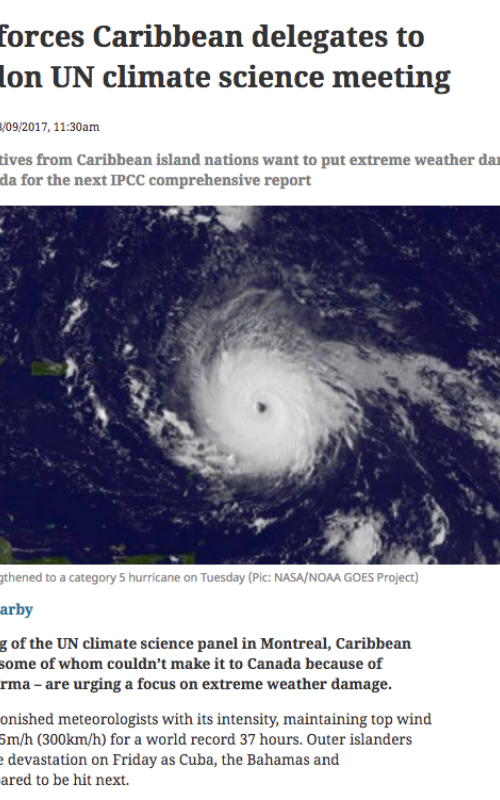Media coverage
Share

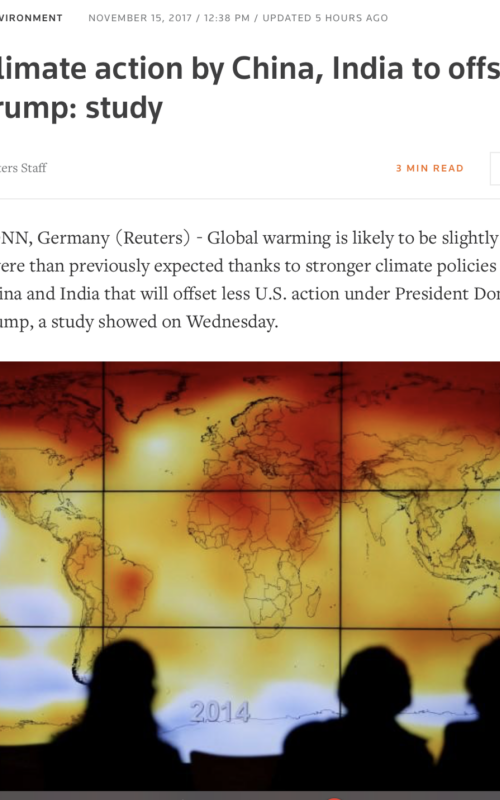
Reuters
BONN, Germany (Reuters) - Global warming is likely to be slightly less severe than previously expected thanks to stronger climate policies by China and India that will offset less U.S. action under President Donald Trump, a study showed on Wednesday.
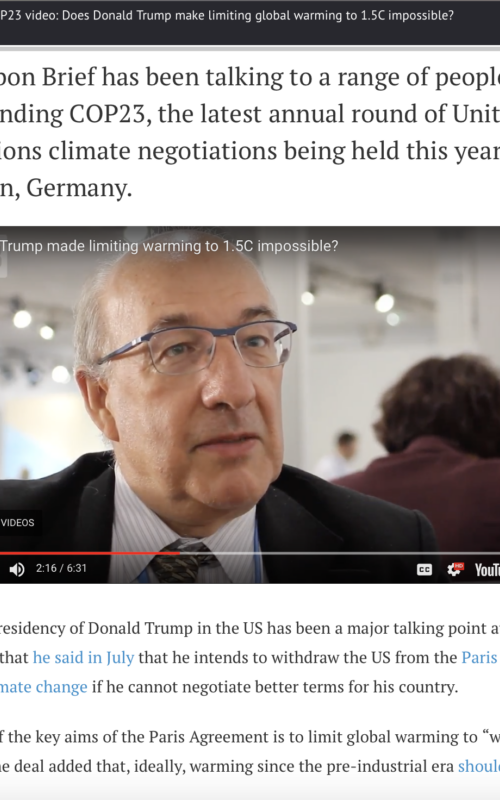
Carbon Brief
The Carbon Brief has been talking to delegates at COP23 whether they think Trump’s presidency means the 1.5°C goal is now impossible - and the answer is no. Video featuring Climate Analytics CEO Bill Hare.
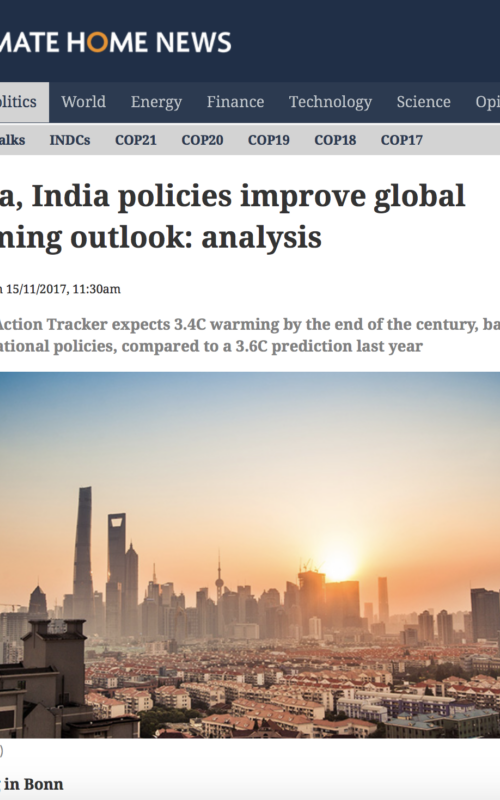
Climate Home
The outlook for curbing global warming has improved since last year as a result of policy moves in China and India, analysts said on Wednesday. In a report released on the sidelines of UN climate talks in Bonn, Climate Action Tracker (CAT) lowered their temperature rise prediction this century from 3.6C to 3.4C.
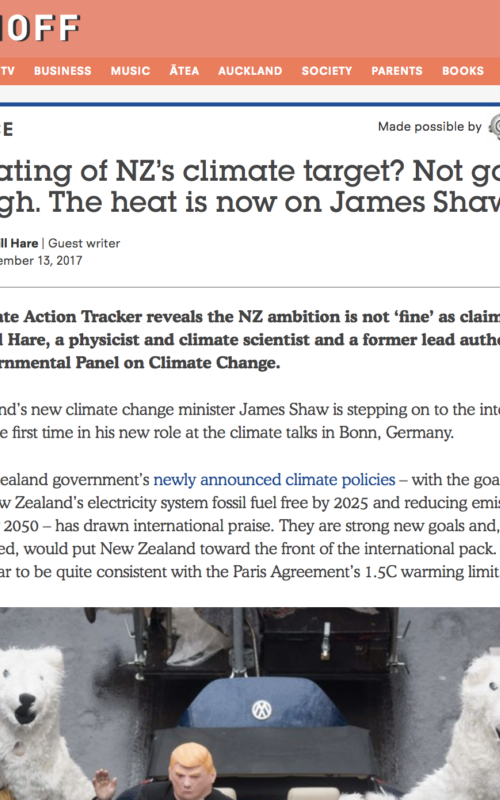
The Spinoff
The New Zealand government’s newly announced climate policies – with the goal of making New Zealand’s electricity system fossil fuel free by 2025 and reducing emissions to net zero by 2050 – have drawn international praise but the Climate Action Tracker reveals the NZ ambition is not ‘fine’ as claimed.
A guest article by Climate Analytics CEO and Senior Scientist Bill Hare.
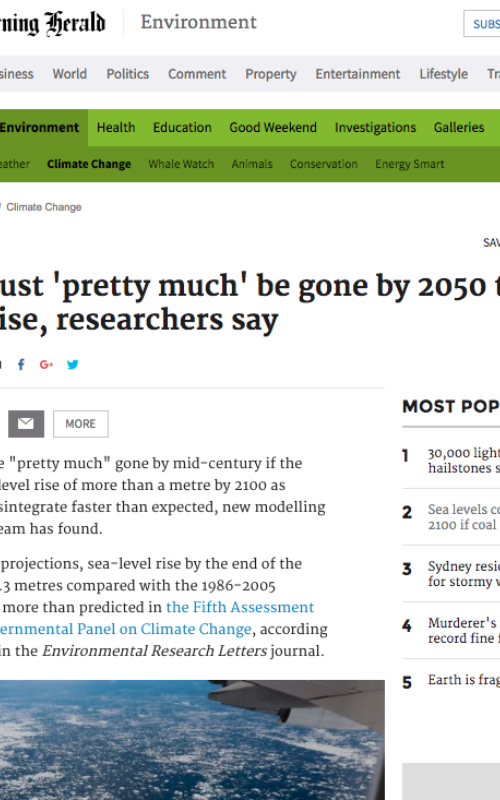
The Sydney Morning Herald
Coal use will have to be "pretty much" gone by mid-century if the planet is to avoid sea-level rise of more than a metre by 2100 as Antarctic ice sheets disintegrate faster than expected, new modelling by an Australian-led team has found.
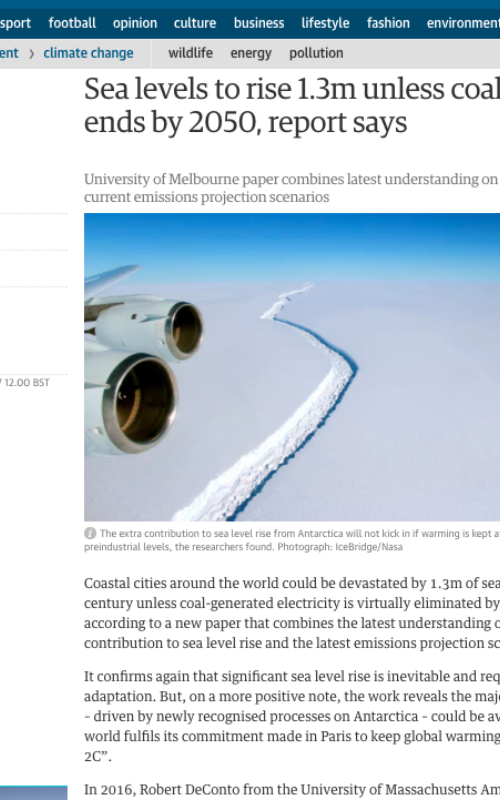
The Guardian
Coastal cities around the world could be devastated by 1.3m of sea level rise this century unless coal-generated electricity is virtually eliminated by 2050, according to a new paper that combines the latest understanding of Antarctica’s contribution to sea level rise and the latest emissions projection scenarios.
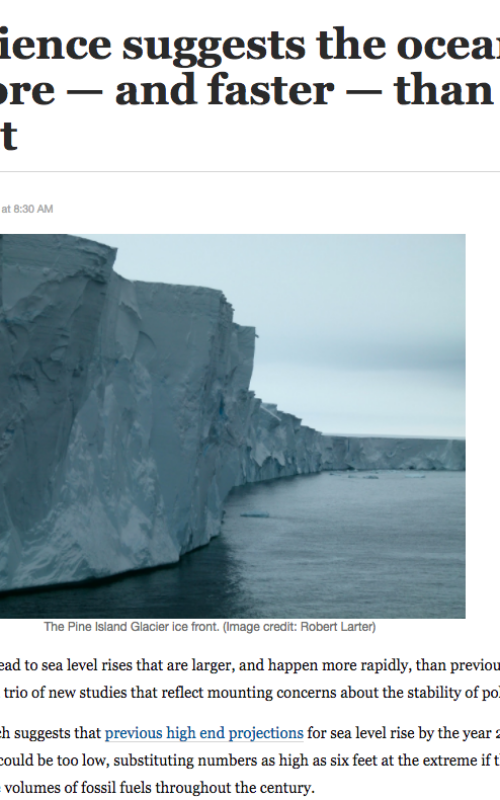
The Washington Post
Climate change could lead to sea level rises that are larger, and happen more rapidly, than previously thought, according to a trio of new studies that reflect mounting concerns about the stability of polar ice. In one case, the research suggests that previous high end projections for sea level rise by the year 2100 — a little over three feet — could be too low, substituting numbers as high as six feet at the extreme if the world continues to burn large volumes of fossil fuels throughout the century.
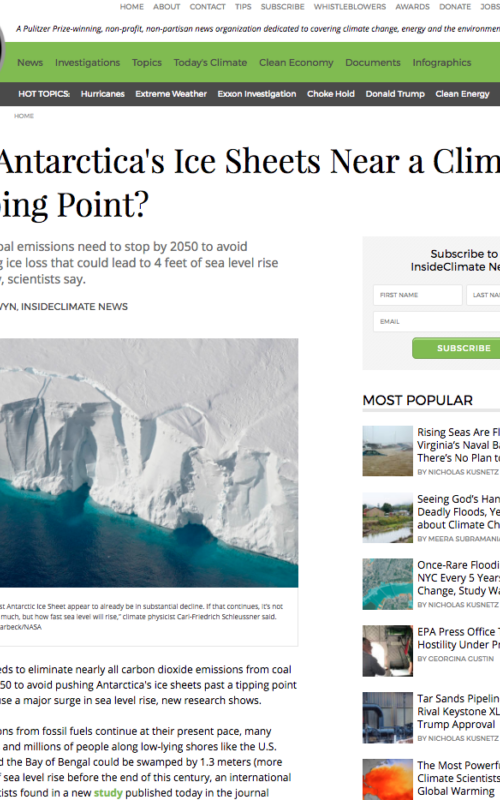
InsideClimate News
The world needs to eliminate nearly all carbon dioxide emissions from coal burning by 2050 to avoid pushing Antarctica's ice sheets past a tipping point that could cause a major surge in sea level rise, new research shows.

Clean Technica
Innovation is needed to decarbonize the steel and cement industries in an effort to meet the Paris Agreement 1.5°C limit, according to new research published by the Climate Action Tracker which deems current technologies insufficient.
